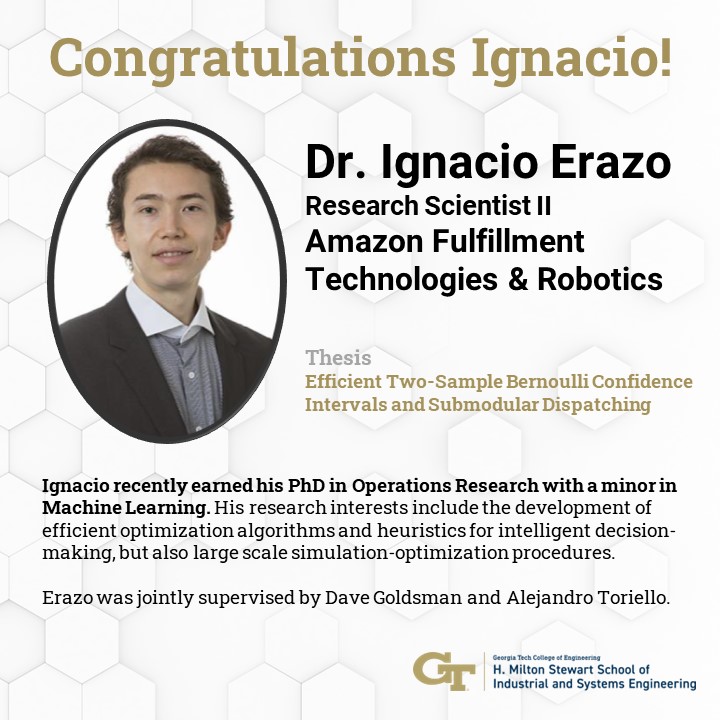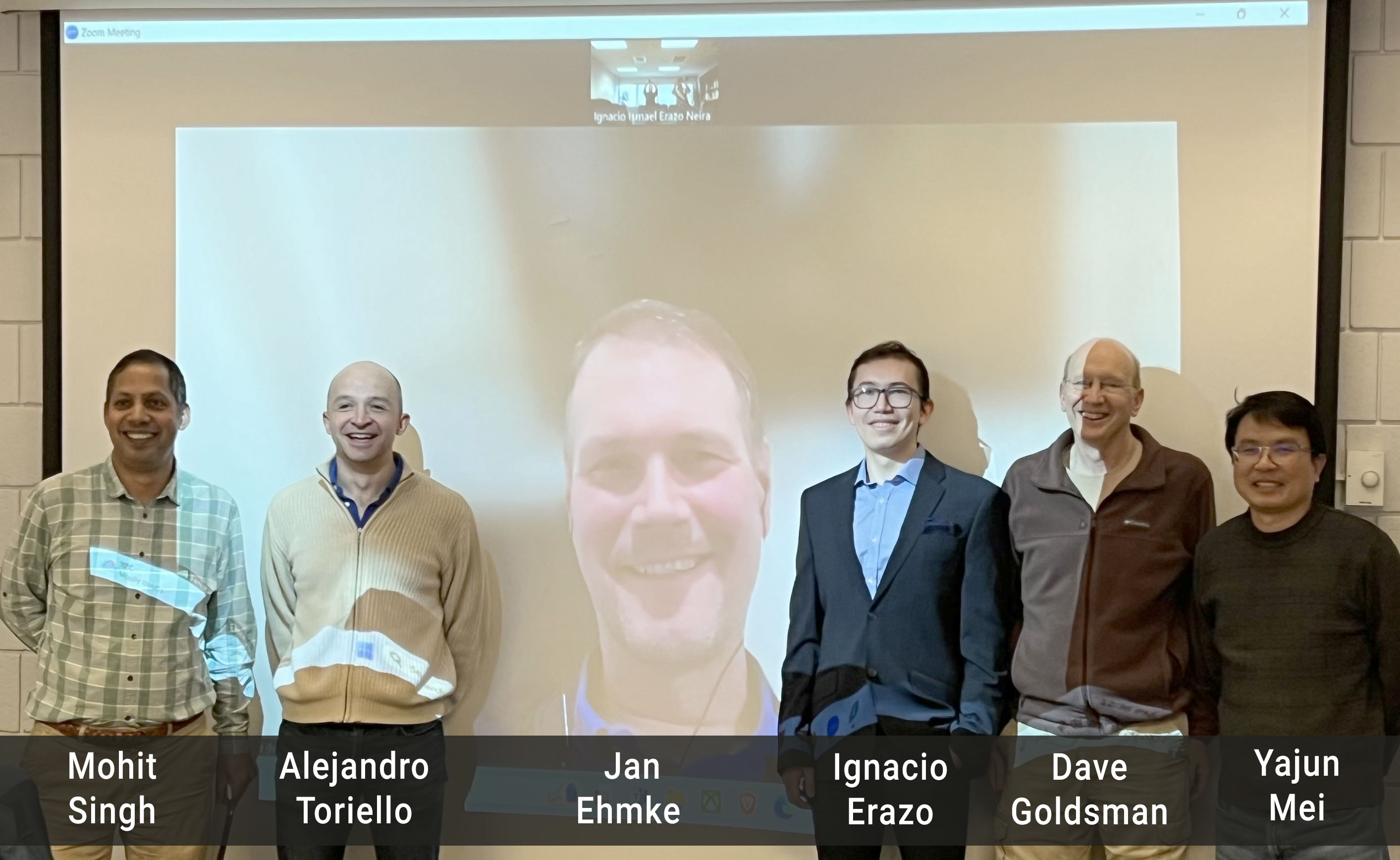Ignacio Erazo recently defended his thesis titled "Efficient Two-Sample Bernoulli Confidence Intervals and Submodular Dispatching", earning his PhD in Operations Research with a minor in Machine Learning under the supervision of Professors David Goldsman and Alejandro Toriello. Erazo's research interests involve the development of efficient optimization algorithms and heuristics for intelligent decision-making as well as large-scale simulation-optimization procedures. Collaborating with Professor Goldsman, he worked on the efficient computation of Confidence Intervals (CIs) for the difference of probabilities between two populations, with applications in health care, last-mile distribution, and production scheduling. This work is useful for many practical problems such as testing new drugs, evaluating inventory policies, estimating contamination rates, or evaluating the difference in rate of adverse events between generic and brand-name drugs. What is notable about his approach is that it uses fewer observations and generates lower costs. With Professor Toriello, Ignacio focused on problems where orders or items arrive at different times and must be processed or delivered in batches (e.g., e-commerce, machine scheduling). By using mathematical models and proposing new algorithms, the team studied the fundamental trade-offs between waiting for orders and batching them, such as obtaining economies of scale, versus the idleness of resources generated by that strategy. This problem has multiple applications in same-day delivery, machine scheduling, and production environments. This work has been presented at scholarly seminars, at multiple INFORMS Annual Meetings, and at the Transportation Science and Logistics (TSL) Conference. Notably, Ignacio's work was recognized with the Best Applied Student Paper Award at Winter Simulation Conference in 2022.
Prior to his doctoral studies at Georgia Tech, Ignacio obtained his degree in industrial civil engineering from the University of Concepcion in 2019. From a very young age, he loved doing math to solve problems and enjoyed participating in math competitions. "Without even recognizing it, I would obsess over taking the 'best' or optimal approach for everything I could. When I took my first optimization class it was obvious to me that this subset of extremely applied math (optimization, but in a broader sense Operations Research) was what I wanted to do in the future, and possibly forever. Essentially, at that point I already knew I wanted to deepen my knowledge, which meant the best course of action was to do a PhD in a university with the best professors." Reflecting on his journey, Ignacio shares his admiration for Georgia Tech's leading position in Operations Research, highlighting the wealth of expertise available within the department. "While Georgia Tech is not as known as other schools in the rest of the world (i.e., Stanford, Harvard, MIT), Georgia Tech leads almost every ranking related to OR. The department is extremely large and there is a professor working in almost every topic. Specific to optimization, logistics, and supply chain, we have a very large number of researchers and professors. That is the reason why GT was one of the only four places I applied to. Knowing what I know today, GT would be second to none."
Erazo’s professional experience includes internships as an applied and research scientist at tech giants Amazon and Apple where he contributed to cutting-edge projects in supply chain management and inventory optimization. At Apple, he was part of the team that develops science-based solutions for its supply chain. In particular, he worked on inventory management for Apple Stores and on "real-time" carrier selection for Apple's supply chain. His projects involved building new methodologies to solve those problems and coding prototypes that could serve as a starting point for deployment and production.
Recently, Erazo joined Amazon Fulfillment Technologies & Robotics as a Research Scientist II. Amazon operates an extensive and intricate supply chain that constantly advances by integrating robotic tools to boost warehouse efficiency. Within this dynamic framework, the algorithmic tools that enable its warehouses to work at their best need to be continuously modified, improved, and enhanced with new capabilities and use cases. Ignacio will meet the challenge by helping create, pilot, and seamlessly deploy new performance and safety-driven algorithms for Amazon's robotic-assisted picking warehouses across its entire network.
Ignacio's dedication to problem-solving and his passion for optimization exemplify the spirit of inquiry and innovation that defines our academic community. We congratulate him on this achievement and look forward to witnessing his continued contributions to the field.

